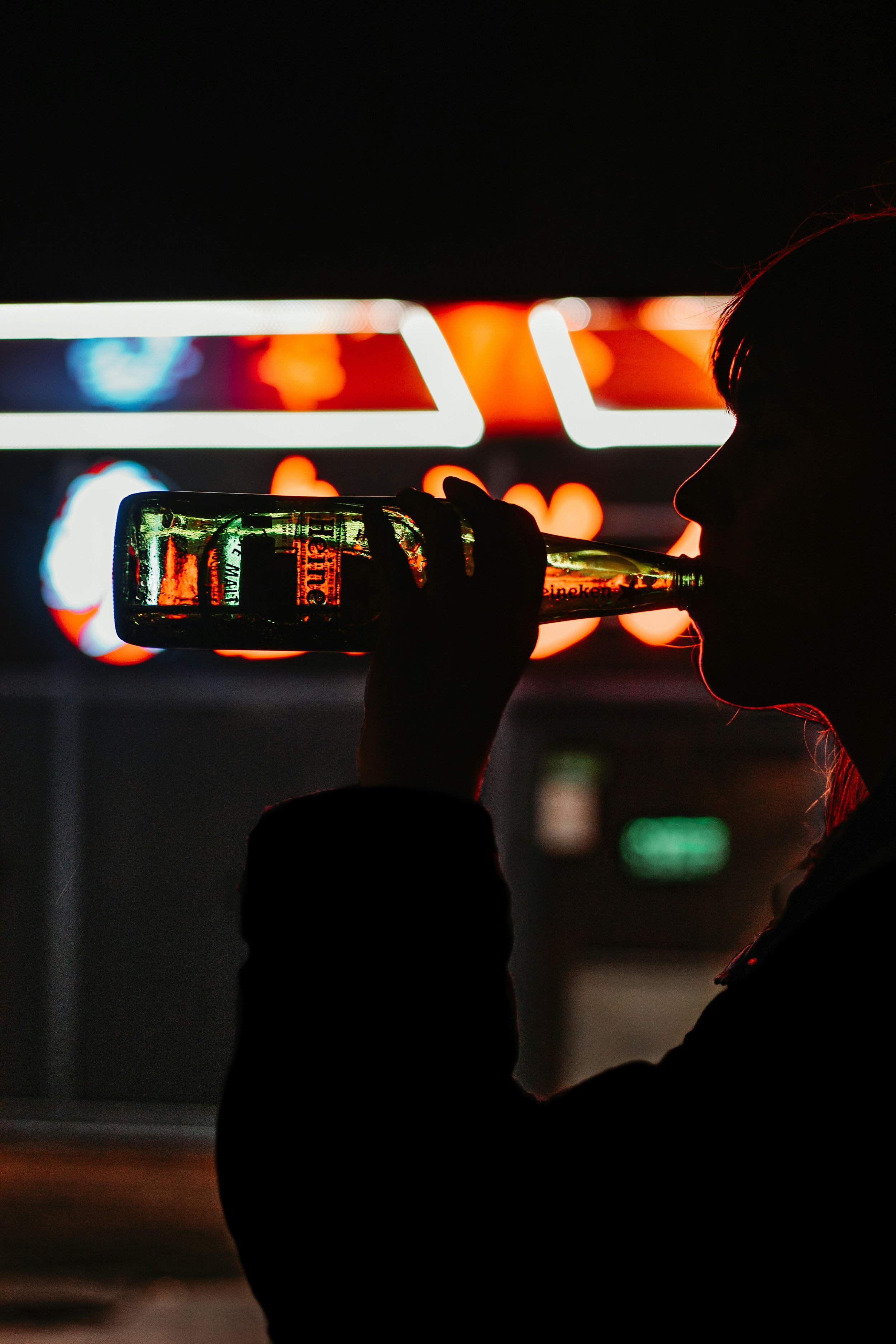Alcohol and Anxiety Amongst Adolescents: Are They Correlated?
Photo provided by Unsplash
Is there a link between alcohol and anxiety in young adolescents and what can be done to prevent alcohol induced anxiety?
There is a growing concern for alcohol consumption among adolescents, with studies showing links between early alcohol use and mental health disorders such as anxiety. Teens and young adults often turn to alcohol for social or stress-relief reasons, however excessive drinking could lead to increased anxiety.
The Adolescent Brain
Early exposure to alcohol can lead to brain changes and increase the risk of other disorders over time. During the time frame that early onset alcohol consumption occurs, the adolescent brain is still in the maturation process (which lasts typically until the mid-20s). Particularly the prefrontal cortex, which is responsible for regulating emotions and decision making. Alcohol can disrupt neurotransmitters like gamma-aminobutyric acid (GABA), which are important for regulating one’s anxiety and stress responses. This makes adolescents more susceptible to the negative effects that alcohol can have.
Effects of Alcohol on Anxiety
Alcohol can have short and long term effects on anxiety. Many start drinking with the initial belief that it will resolve their anxiety. While alcohol may initially induce relaxation, these effects are merely a temporary solution. Alcohol is a depressant meaning it depresses the central nervous system, but as the body metabolizes alcohol, the brain tries to restore its balance which can spike stress hormones that lead to a feeling of restlessness, nervousness, and irritability.
Repeated alcohol use can alter the brain's chemistry, making early alcohol users more vulnerable to chronic anxiety. Consuming alcohol on a regular basis can weaken the body’s ability to regulate stress. Many studies have also shown that adolescents who drink more regularly are more likely to develop Generalized Anxiety Disorder, symptoms including excessive worry and fear. Drinking can become a coping mechanism that leads to dependency and could worsen mental health.
A Vicious Cycle
Many times adolescents fall into the cycle where they begin using alcohol as a coping mechanism for stress and anxiety, not knowing its effects could worsen their symptoms as they continue. It is important to be aware of this cycle and see the warning signs. It often starts with the initial use of alcohol which can be influenced by their peers, feelings of stress, anxiety, depression, and so on. This short-term relief fades and as a result, anxiety may return even stronger due to withdrawal effects. There then tends to be an increase of consumption to build tolerance, but with tolerance it could start to lead to dependence. Over time, drinking can become a necessity to manage anxiety almost like taking ibuprofen for a headache, increasing the risk of alcohol abuse and continuing the cycle.
Taking Preventative Measures
It is important to learn the preventive measures one can take to help mitigate alcohol induced anxiety. Increasing proper education and support for mental health during their development stages can help develop healthier coping skills. Schools and parents can educate their children on the major impacts alcohol can have on their mental health and introduce other forms of coping mechanisms such as: exercise, therapy, or hobbies that can help to manage stress and anxiety. With the normalization of early onset alcohol consumption, more open conversations about the use of alcohol and mental health can increase awareness and promote knowledge about alcohol-consumption risks.
Alcohol use among the youth is a serious issue that can have long-term consequences and effects may be difficult to reverse. It is essential to raise awareness about the risks of alcohol and provide support to those currently struggling with it.

